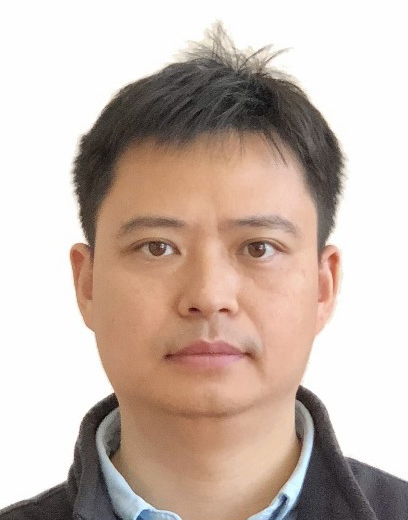Speaker Details

Haibin Ling
Stony Brook University
Bio:
Prof. Haibin Ling received the B.S. and M.S. degrees from Peking University in 1997 and 2000, respectively, and the Ph.D. degree from the University of Maryland, College Park, in 2006. From 2000 to 2001, he was an assistant researcher at Microsoft Research Asia. From 2006 to 2007, he worked as a postdoctoral scientist at the University of California Los Angeles. In 2007, he joined Siemens Corporate Research as a research scientist; then, from 2008 to 2019, he worked as an Assistant Professor and then Associate Professor at Temple University. In fall 2019, he joined Stony Brook University as a SUNY Empire Innovation Professor in the Department of Computer Science. His research interests include computer vision, augmented reality, medical image analysis, machine learning, and human computer interaction. He received Best Student Paper Award at ACM UIST (2003), Best Journal Paper Award at IEEE VR (2021), NSF CAREER Award (2014), Yahoo Faculty Research and Engagement Award (2019), and Amazon Machine Learning Research Award (2019). He serves or served as Associate Editors for IEEE Trans. on Pattern Analysis and Machine Intelligence (PAMI), IEEE Trans. on Visualization and Computer Graphics (TVCG), Computer Vision and Image Understanding (CVIU), and Pattern Recognition (PR), and as Area Chairs various times for CVPR, ECCV and WACV.
Keynote Title:
Prior Knowledge Guided Unsupervised Domain Adaptation.
Keynote Abstract:
The waive of labels in the target domain makes Unsupervised Domain Adaptation (UDA) an attractive technique in many real-world applications, though it also brings great challenges as model adaptation becomes harder without labeled target data. In this work, we address this issue by seeking compensation from target domain prior knowledge, which is often (partially) available in practice, e.g., from human expertise. This leads to a novel yet practical setting where in addition to the training data, some prior knowledge about the target class distribution are available. We term the setting as Knowledge-guided Unsupervised Domain Adaptation (KUDA). In particular, we consider two specific types of prior knowledge about the class distribution in the target domain: Unary Bound that describes the lower and upper bounds of individual class probabilities, and Binary Relationship that describes the relations between two class probabilities. We propose a general rectification module that uses such prior knowledge to refine model generated pseudo labels. The module is formulated as a Zero-One Programming problem derived from the prior knowledge and a smooth regularizer. It can be easily plugged into self-training based UDA methods, and we combine it with two state-of-the-art methods, SHOT and DINE. Empirical results on four benchmarks confirm that the rectification module clearly improves the quality of pseudo labels, which in turn benefits the self-training stage. With the guidance from prior knowledge, the performances of both methods are substantially boosted. We expect our work to inspire further investigations in integrating prior knowledge in UDA.

Leonid Sigal
University of British Columbia
Bio:
Prof. Leonid Sigal is an Associate Professor at the University of British Columbia (UBC). He was appointed CIFAR AI Chair at the Vector Institute in 2019 and an NSERC Tier 2 Canada Research Chair in Computer Vision and Machine Learning in 2018. Prior to this, he was a Senior Research Scientist, and a group lead, at Disney Research. He completed his Ph.D at Brown University in 2008; received his B.Sc. degrees in Computer Science and Mathematics from Boston University in 1999, his M.A. from Boston University in 1999, and his M.S. from Brown University in 2003. He was a Postdoctoral Researcher at the University of Toronto, between 2007-2009. Leonid's research interests lie in the areas of computer vision, machine learning, and computer graphics; with the emphasis on approaches for visual and multi-modal representation learning, recognition, understanding and analytics.
Keynote Title:
Data Efficiency and Bias in Detailed Scene Understanding.
Keynote Abstract:
In this talk I will discuss recent methods from my group that focus on data efficient learning in the context of granular scene understanding, such as object detection, segmentation, and scene graph generation. Traditional methods for object detection and segmentation rely on large scale instance-level annotations for training, which are difficult and time-consuming to collect. Efforts to alleviate this look at varying degrees and quality of supervision. Weakly-supervised approaches draw on image-level labels to build detectors/segmentors, while zero/few-shot methods assume abundant instance-level data for a set of base classes, and none to a few examples for novel classes. In our recent work we aim to bridge this divide by proposing a simple and unified semi-supervised model that is applicable to a range of supervision: from zero to a few instance-level samples per novel class. For base classes, our model learns a mapping from weakly-supervised to fully-supervised detectors/segmentors. By learning and leveraging visual and lingual similarities between the novel and base classes, we transfer those mappings to obtain detectors/segmentors for novel classes; refining them with a few novel class instance-level annotated samples, when, and if, available.
In a conceptually related work, but focusing on a more holistic scene understanding, we propose a framework for pixel-level segmentation-grounded scene graph generation. Our framework is agnostic to the underlying scene graph generation method and address the lack of segmentation annotations in target scene graph datasets (e.g., Visual Genome) through transfer and multi-task learning from, and with, an auxiliary dataset (e.g., MS COCO). Specifically, each target object being detected is endowed with a segmentation mask, which is expressed as a lingual-similarity weighted linear combination over categories that have annotations present in an auxiliary dataset. These inferred masks, along with a Gaussian masking mechanism which grounds the relations at a pixel-level within the image, allow for improved relation prediction. Finally, I will discuss our recent work where we explicitly target long tail distribution of labels inherent in scene graph generation, proposing a model that is both computationally efficient and able to modulate the bias in the data distribution.

Patrick Pérez
Valeo.ai
Bio:
Patrick Pérez is Valeo VP of AI and Scientific Director of valeo.ai, an AI research lab focused on Valeo automotive applications, self-driving cars in particular. Before joining Valeo, Patrick Pérez has been a researcher at Technicolor (2009-2018), Inria (1993-2000, 2004-2009) and Microsoft Research Cambridge (2000-2004). His research interests include multimodal scene understanding and computational imaging.
Keynote Title:
Frugal ML for Autonomous Driving.
Keynote Abstract:
TBD.